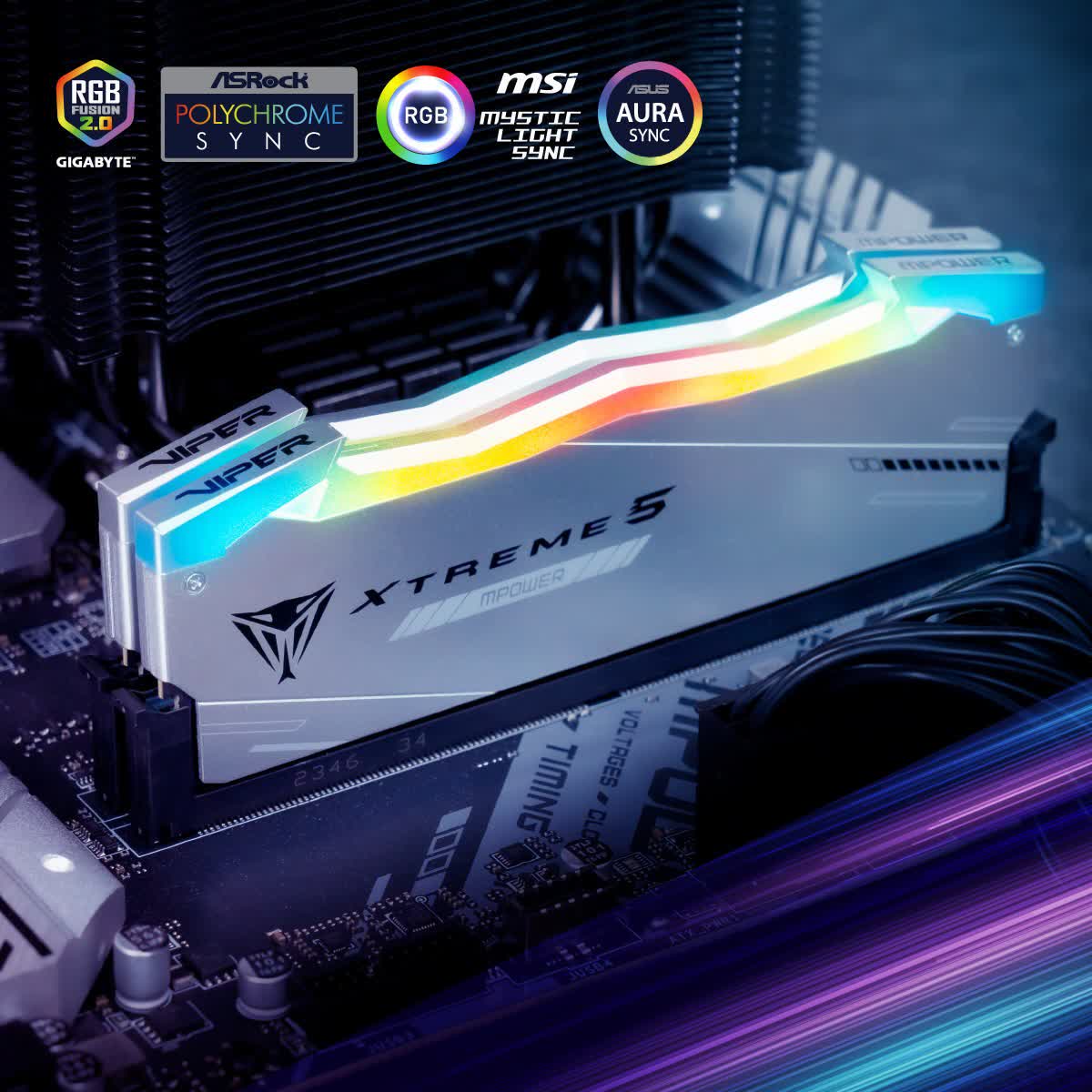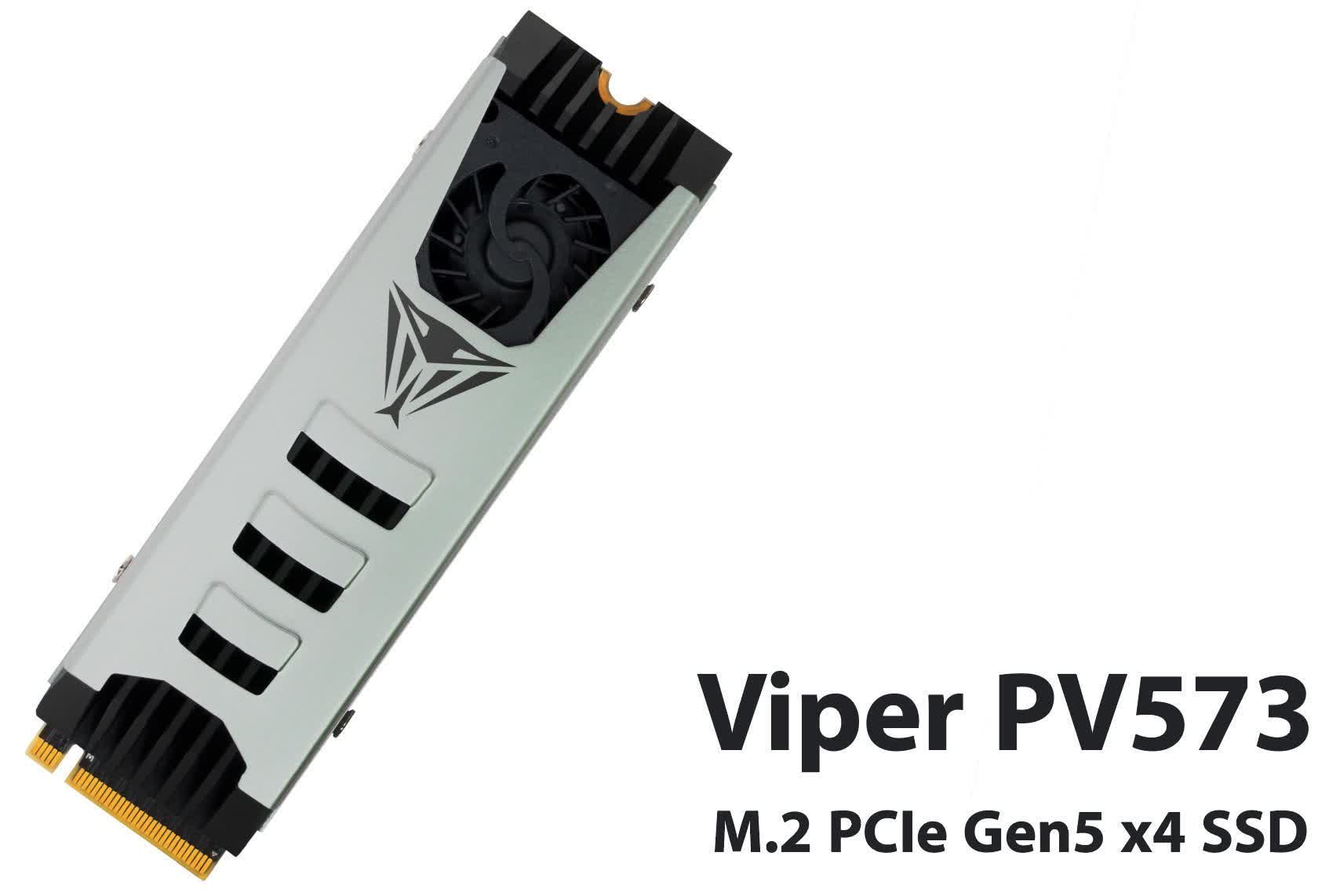Forward-looking: DDR5 memory and PCIe 5.0 storage solutions have pushed consumer hardware to unprecedented speeds since their introduction with the latest motherboards. At Computex 2024, Patriot demonstrated how it leveraged this technology for bleeding-edge products, including a partnership with MSI to achieve a record-breaking RAM overclock.

Patriot's booth at Computex showcased the company's new ultra-fast RAM and SSD, both reaching the highest speed tiers of their respective categories. The memory modules set new records for consumer RAM.
Patriot collaborated with MSI to unveil the Viper Xtreme 5 RGB DDR5 MPower series. Under normal operation, the RAM modules can reach up to 8,000 MT/s – typical of DDR5. However, overclocking pushes the ECC RDIMM modules to an unprecedented 11,500 MT/s.
MSI supplied an all-silver aluminum heat spreader to control thermals at those speeds, and the EZ Dashboard overclocking utility for timing and voltage management. For comparison, G.Skill and Asus worked together to overclock a DDR5 kit to 10,000 MT/s in 2022 but could only achieve the feat through settings unlikely to see real-world use.
Patriot claims the new precedent in RAM speed will help with video editing, AI, workloads, and gaming. However, most high-end games can still run optimally on DDR4 memory, which remains much cheaper and supports a wider range of motherboards.
Still, JEDEC is pushing further with DDR6, which is still deep in development. The upcoming standard won't reach consumers for a while but might enable speeds up to 21,000 MT/s.

Meanwhile, Patriot also showcased the Viper PV573 PCIe 5.0 NVMe SSD at Computex. It supports read speeds of up to 14 GB/s and write speeds of up to 12 GB/s. While other PCIe 5.0 drives have hit similar speeds, 14 GB/s remains at the absolute cutting edge.
Notably, Patriot didn't display a gargantuan cooler, which other SSDs exceeding 10 GB/s have needed to avoid severe throttling. At last year's Computex, Adata showed a 14 GB/s SSD that required a liquid cooling solution which dwarfed the main unit. Patriot's real achievement might be maintaining top-end speeds with a more reasonably sized heatsink.
The company has yet to disclose pricing and release details, but the PV573 will be available in capacities up to 4TB. A DRAMless model for mobile devices – the PD573 – reaches the same speeds with sizes up to 16TB. The Viper Xtreme 5 RAM will support configurations of up to 48 GB.